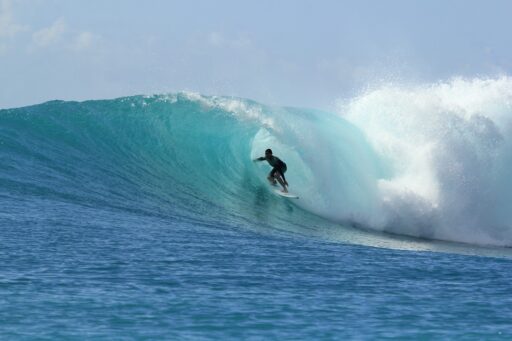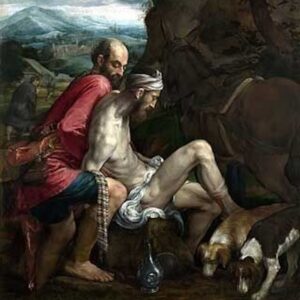You’d think, from the cinematic first sentence of Hermann Broch’s The Death of Virgil (Das Tod des Virgils in the original German), that the story about to follow must surely be a tale of adventure.
Steel-blue and light, ruffled by a soft, scarcely perceptible cross-wind, the waves of the Adriatic streamed against the imperial squadron as it steered toward the harbor of Brundisium, the flat hills of the Calabrian coast coming nearer on the left.
Through the rest of the paragraph, we focus closely on the sights and smells of the approaching harbor. But in the following paragraph the narrator turns to view the oared boats of the “imperial squadron” itself, which we learn accompany the ornately “sumptuous” craft bearing the tent of Augustus Caesar.
So is this the opening to an historical novel just begging for a Hollywood-style makeover, with Richard Burton in that tent and Elizabeth Taylor carved on the prow? In which case, how could the poet Virgil be its star figure?
Patience, because the paragraph isn’t over. Our camera quickly moves away from the emperor’s tent to look at the boat behind it:
Yet on the ship that immediately followed was the poet of the Aeneid and death’s signet was on his brow.
We’ve almost reached our destination, Virgil himself. But our destination isn’t so much the moribund poet as the ebbing and flowing of his consciousness.
And it’s there we’ll stay for the duration of the almost 500 pages that follow. We’ll ride the waves of Virgil’s consciousness first as the poet arrives in port and is borne through Brundisium’s streets on a litter, then as he languishes through the night in torment over whether to destroy his unfinished epic, the Aeneid, and then the next morning as he argues with Augustus Caesar against Augustus’s insistence that he preserve it.
Our ride through these first three of the novel’s four sections (respectively entitled “Water—The Arrival,” “Fire—The Descent,” and “Earth—The Expectation”) is a stormy one, as we’re buffeted throughout by conflicting currents surging through the poet’s mind. But in the fourth and final section, “Air—the Homecoming,” the turbulence gives way to a single surging wave that increases in force and intensity until it breaks on the shore both of the last page and of the poet’s life.
Take a deep breath and see if you can ride this final wave to the end, and note as you do the way opposite currents of meaning are constantly in play, the expressible with the inexpressible:
The rumbling continued and it was emitted from the mingling of the light with the darkness, both of them roused by the incipient tone which now actually began to sound, and that which sounded was more than song, more than the striking of the lyre, more than any tone, more than any voice, since it was all of these together and at once, bursting out of the nothing as well as out of the universe, breaking forth as a communication beyond every understanding, breaking forth as a significance beyond every comprehension, breaking forth as the pure word which it was, exalted above all understanding and significance whatsoever, consummating and initiating, mighty and commanding, fear-inspiring and protecting, gracious and thundering, the word of discrimination, the word of the pledge, the pure word; so it roared thither, roaring over and past him, swelling on and becoming stronger and stronger, becoming so overpowering that nothing could withstand it, the universe disappearing before the word, dissolved and acquitted in the word while still being contained and preserved in it, destroyed and recreated forever, because nothing had been lost, nothing could be lost, because end was joined to beginning, being born and giving birth again and again; the word hovered over the universe, over the nothing, floating beyond the expressible as well as the inexpressible, and he, caught under and amidst the roaring, he floated up with the word, although the more he was enveloped by it, the more he penetrated into the flooding sound and was penetrated by it, the more unattainable, the greater, the graver and more elusive became the word, a floating sea, a floating fire, sea-heavy, sea-light, notwithstanding it was still the word: he could not hold fast to it and he might not hold fast to it; incomprehensible and unutterable for him: it was the word beyond speech.
Broch’s stream-of-consciousness treatment of Virgil’s inner struggles is modeled on Joyce’s use of the technique in A Portrait of the Artist as a Young Man, and in key ways the mind in question, Virgil’s, surges through a development similar to that of the young Stephen Dedalus. We readers have to hang on tightly as the minds of both artists strive to overcome their limitations and set out for new horizons. Stephen goes “to encounter for the millionth time the reality of experience and to forge in the smithy of my soul the uncreated conscience of my race.” Virgil, as we’ve just seen, has an even more ambitious goal, to float ever closer to the “word beyond speech.”
Of course differences abound. Joyce imagines Stephen’s development from the beginning of life, not from the end of it. And Stephen’s goal, to forge “the uncreated conscience of my race,” is one that Virgil has already achieved in the Aeneid. For if there was ever a book that set as its purpose the crafting of a culture’s identity, that book is the Aeneid.
In fact, the very success of the Aeneid is what provokes Virgil’s lengthy argument with Augustus in The Death of Virgil’s third part. Augustus claims the Aeneid as the property of the Empire it so beautifully celebrates. Virgil wears himself out trying to persuade Augustus that the Empire is its own truest symbol and that the Aeneid offers only a passing glimpse of what the Augustus himself fully embodies. It’s an unequal contest, and Virgil yields to exhaustion at the end, allowing Augustus to take back to Rome the box containing the Aeneid’s scrolls.
But it’s clear in Virgil’s argument with Augustus that Virgil’s desire to destroy the Aeneid has nothing to do with its being unfinished (which is the explanation given in the legends about Virgil that inspired Broch), but with the inadequacy of art to fulfill its “pledge,” as Broch’s Virgil calls it—its pledge to rise above and beyond metaphor in order to become the truth it expresses.
The Death of Virgil was criticized on its 1945 publication for what some thought Broch’s pessimistic view of art’s capacity and his anachronistic reinvention of Virgil’s motive for wanting to destroy his own book. Broch’s defense was that Nazi Germany’s propagandistic betrayal of art’s value warranted such a sobering reappraisal, and that art’s value could be restored only by the renunciation of its inflated claims.
A dispute like this actually echoes and extends the highly dialectical power of Broch’s writing. Remember that “scarcely perceptible cross-wind” from the novel’s first sentence? And the heaving to-and-fro of its last paragraph? If you, like me, enjoy riding the surf, you’ll be glad when you finally make it to shore even with bumps and bruises.
After getting his PhD in English literature, George Dardess taught close reading to his own students until his retirement. Since then he has been ordained a Deacon in the Roman Catholic Church and written several books on Muslim-Christian relations. He has also created the graphic novel Foreign Exchange.





